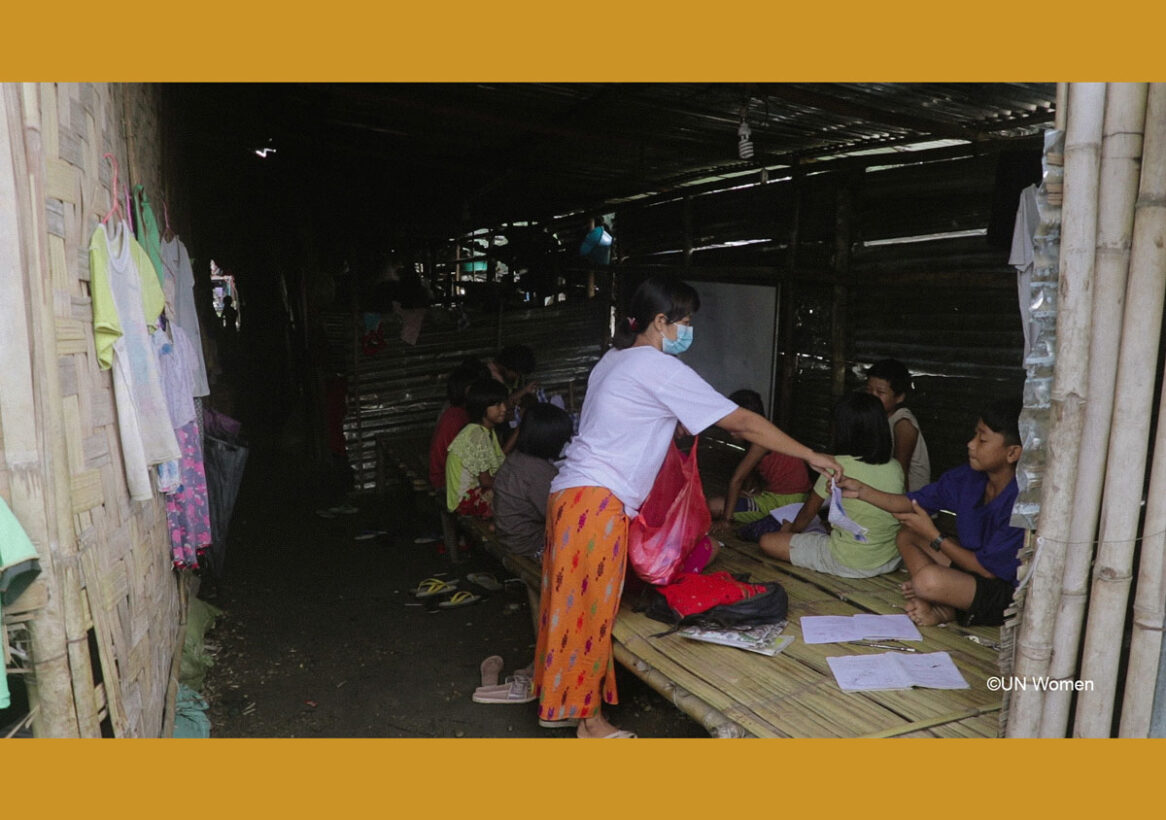Sustainable Model of Care: Evidence-Based Workplace Policies
As a working mother of young child during the early stages of the pandemic, I found myself stretched too thin on both sides of work and family. I lost a close friend of mine to Covid 19 that time. A strong, smart working mother of two very talented daughters, she was expecting her third child that time. She was doing a great job as an editor with an established organization along with family responsibilities and nurturing a five-month pregnancy. We often used to chat about work, workplace, managing kids, etc. She really got my back when the going got tough. Her sudden departure was a shock. That was the moment I decided to switch from a full-time job to a freelancing format for the sake of my child, my family, flexibility, and above all, for that peace of mind. My friend lost her life, I lost my job, our organizations lost their trained manpower. Was it good for anyone? No, clearly not. We were all at loss. Belonging to the tribe of working mothers, I can relate how much it can matter to us having a workplace that acknowledges our duties both as an employee as well as a mother. It’s pretty evident how much talent is simply wasted just because there is no plan in place at most of the workplaces that can accommodate working mothers with their mommy duties.
It is clear that the government and employers weren’t doing enough to support working families in the pandemic. Especially nothing for working mothers being well aware that schools and day cares are shut down, children are at risk and mothers are primary care givers by default. Every person requires care at different points of time in their life, yet no one cares about the care when it comes to the workplace policies. It would only help to focus better, dedicate extra hours at work if employees can be rest assured that their families are safe. This is especially true for parents with infants and young children. Childcare is one of the major public health issues. The issue of childcare cuts across different sectors impacting health, education, safety, security, economy, etc. Another very important issue which is directly linked with childcare is the issue of gender inequality. Traditionally women are considered to take complete responsibility for childcare regardless of the fact whether they are working women or stay- at-home mothers with other non-paid jobs.
NITI Aayog has recently conducted a study to understand the impact of Covid 19 on young children and their care givers.(1) The study found that 65% parents (with a child aged 3-6 years of age) interviewed in this study reported facing challenges in continuing their young children learning at home. Most of the parents cited a lack of time due to work as a challenge in continuing their young children learning at home. Though not included in this study, several working women left their careers during Covid pandemic because of their children’s education, exams, and other concerns. By not having a plan in place that helps parents manage such challenges, the system either suffer the loss of trained employees or the loss of children’s education. The same is true for children’s health, safety, and security.
Many women drop out of the workforce because of childcare responsibility and the lack of family friendly policies at work. This further reduces the female labour force participation (flfp) which already is very poor in low- and middle-income countries.(2) The lack of female representation in important discussions and decision-making at workplaces leads to over representation of men. No wonder this leads to policies and guidelines which are male centric or gender neutral at the least (Figure 1).

Fig1: The vicious cycle of gender inequality at workplace settings due to lack of childcare policies.
We know for sure that the presence and services of women are indispensable both at home and in office. This is why we need gender sensitive policies that acknowledge and regard the double duties managed by working mothers. Adequate female representation throughout the process of decision making will help to ensure the concerns and challenges of working women are considered while formulating a workplace policy.
If we go by the principle of evidence-based decision making, whether it is a decision to invest on something or is a decision to not invest on something, it has to be based on evidence, if we wish to utilise our resources judiciously. Because in both the cases there will be direct and indirect costs associated with a decision. If we take the example of investing in childcare policies here, we can see there would be costs associated with the benefits such a policy offers to provide. But the lack of such a policy also incurs cost in various forms.
This includes the cost of recruiting and training new staff each time a woman drops out of the workforce due to childcare duties. This cost also includes the cost of poor development and growth of children when they do not receive adequate care during early years of life. The cost of not investing efficiently on childcare is simply very high not just in monetary terms but also in many other ways if we consider the ethics and equality linked with this.
A well conducted economic evaluation study can be a great starting point to understand how much resources will be invested and what would be the return on investment (ROI) by investing on a childcare policy. Further evidence will be required to frame a policy that ensures childcare as a responsibility shared by all stakeholders, and not just the women. There is a study on similar themes, recently published by the International Labour Organization (ILO).(3) The study analysed the annual investment required for universal childcare plans in 82 countries. The author simulated policy reforms to show how much additional cost will be required for a universal childcare plan. The study also concluded that such care investments could also provide powerful economic stimulus that can help create millions of new jobs by 2035. There are some other relevant studies found by a quick internet search.(1,4–6) A well-planned systematic review of all such studies along with an Evidence and Gap map (EGM) can provide a much-required evidence base to build a sustainable model of care that suits everyone regardless of their age and gender.
References:
Niti Aayog. Evidence – based response to early childhood development (ECD) during the COVID – 19 crisis [Internet]. 2011 Apr [cited 2022 Jul 7]. Available from: https://www.niti.gov.in/sites/default/files/2022-04/ECD-Covid-Study-Report_clean-19042022.pdf
International Labour Organization I database. Labor force participation rate, female (% of female population ages 15+) (modeled ILO estimate) | Data [Internet]. 2022 [cited 2022 Jul 7]. Available from: https://data.worldbank.org/indicator/SL.TLF.CACT.FE.ZS? end=2021&start=1990&view=chart
Costs and benefits of investing in transformative care policy packages. A macrosimulation study in 82 countries [Internet]. [cited 2022 Jul 7]. Available from: https://www.ilo.org/legacy/english/intserv/working-papers/wp055/index.html
Ireson R, Sethi B, Williams A. Availability of caregiver-friendly workplace policies (CFWPs): an international scoping review. Health & Social Care in the Community [Internet]. 2018 Jan 1 [cited 2022 Jul 7];26(1):e1–14. Available from: https://onlinelibrary.wiley.com/doi/full/10.1111/hsc.12347
Pavalko EK, Henderson KA. Combining Care Work and Paid Work: Do Workplace Policies Make a Difference? Research on Aging [Internet]. 2016 Aug 18 [cited 2022 Jul 7];28(3):359–74. Available from: https://journals.sagepub.com/doi/abs/10.1177/0164027505285848
Addati L, Cattaneo U, Pozzan E. Care at work: Investing in care leave and services for a more gender equal world of work [Internet]. 2022 [cited 2022 Jul 7]. Available from: https://www.ilo.org/wcmsp5/groups/public/—dgreports/—dcomm/documents/publication/wcms_838653.pdf
Write to us to know more and to get in touch: [email protected] or [email protected].




